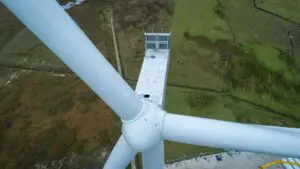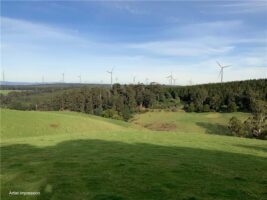The Netherlands has awarded permits for four gigawatts (GW) of new offshore wind capacity in its latest zero-subsidy tender, with the projects to include floating solar farms, artificial reefs and a green hydrogen facility.
The two winning sites are located in the IJmuiden Ver Wind Farm Zone, around 62 kms off the Dutch coast in the North Sea. Each will boast a capacity of at least 2GW for a combined capacity of 4GW – which will provide around 14 per cent of the Netherlands current electricity consumption.
The Dutch Ministry of Economic Affairs and Climate Policy and the Netherlands Enterprise Agency (RVO) said the contracts went to two consorta that had to meet a number of criteria through their applications designed to strengthen the ecological and environmental benefits of the wind farms.
A consortium consisting of ABP, APG, and SSE Renewables won the right to develop the 2GW “Alpha” site. The “Noordzeker” consortium project will include a “living laboratory” which will build artificial reefs on over 75 per cent of the wind turbines.

Noordzeker’s plans also include turbine and wind farm designs that will contribute to the protection of birds and contains measures that will significantly reduce disturbance to marine mammals during construction and operation.
The second consortium, Zeevonk, made up of Vattenfall and Copenhagen Infrastructure Partners (CIP), was awarded the contract to build the IJmuiden Ver Beta wind farm.
In addition to the 2GW offshore wind farm, IJmuiden Ver Beta will also consist of a 50MW floating solar farm, the largest of its kind in the Netherlands, while a 1GW green hydrogen electrolyser will be built onshore in the port of Rotterdam.
“The Netherlands is taking yet another major step forward in the energy transition with IJmuiden Ver,” said Martijn Hagens, CEO of Vattenfall Netherlands.
“Combining wind, solar and hydrogen, this project will create a state-of-the-art energy system and support further decarbonisation of industries and our society. We are extremely proud to have been awarded this permit and look forward to implementing our plans for this energy park together with CIP.”
While there have been come concerns raised around the economic sustainability of Netherlands’ zero-subsidy tenders, this latest tender nevertheless received several bids, and both consortia have committed to paying the state for the right to develop and operate the wind farms.
“It shows that wind farms and nature can go well together and that offshore wind with smart solutions can help reduce pressure on the onshore power grid,” said Rob Jetten, the Netherlands’ minister for climate and energy.
” Market conditions have become more complicated, so I am extra happy that these parties want to build offshore wind farms!”








